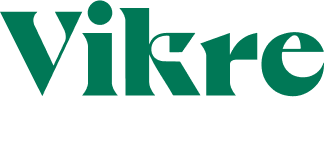OUR TRIPLE BOTTOM LINE
What does that mean? It means we have three equal goals: people, planet, and profit.
When we make decisions, we’re not just thinking about the profit circle, we’re looking to make decisions where the profit circle overlaps with the people circle and the planet circle. We’re seeking solutions and business practices where the good of people, planet, and profit intersect, and are trying to find creative ways of increasing the area encompassed by that intersection.
Nice Venn diagrams, right?! But, what does this look like in practice? Well, let’s get to specifics.
PEOPLE
We pay our employees competitive wages. Even as a small company, we offer benefits such as retirement plans with matching, paid parental leave for both parents, flexibility and predictability in scheduling, paid sick and safe time, flexibility for parents including allowing people to bring kids to work when needed, cost of living adjustments, profit sharing bonuses when possible, and more. We strive to create a workplace where people are valued as individuals far beyond the role they fill. We strive to be good members of our community, supporting community groups, acting as a friendly meeting place, donating to local causes, and trying to give back.
We also try and contribute to a more positive culture around alcohol. We try and promote a “Drink Less. Drink Better.” approach to alcohol, which you can see in our fanatical dedication to flavor.
PLANET
As a manufacturer, we use inputs, and we create outputs. Our goal is always to be aware of the resources we are using and the byproducts we are creating, continually improving our work to be good stewards of our resources.
In 2015, we changed our cooling and heating system to reduce our water usage by over 70%. And we implemented a bottle return and reuse program to reduce our glass use. Any bottles we can’t use are recycled. The ink on our bottle labels is water-based, lead-free, and entirely recyclable. We also use compostable cups at tastings and events.
In 2016, we improved our grain sourcing to move towards using over 90% local and organic grains. We source all of our botanicals organically, locally, or both.
In 2017, we have set ourselves the goal of becoming a zero-waste facility. We are: changing our packaging to further reduce plastic use; setting up compost for our entire building; disposing of our spent grain through a combination of animal feed, composting, and digestion to make bio-gas. We’re also setting up recycling for stretchy plastics that aren’t accepted by the city.
In 2018, we dedicated 4 months to talking with experts from different water-related fields to learn more about water conservation issues in our area and to ask them what they thought we should do next. Their take home message was that we had done most of the things they would recommend and now it was time to talk about it more and advocate for other businesses to implement similar practices. So, we have been speaking, writing, and collaborating with other businesses as well as universities and non-profits to work towards a rising tide of change that lifts all ships.
Right now we are up to all of these same things, exploring package redesign options to further reduce our footprint, and working with the St. Louis River Alliance and Friends of the Boundary Waters on projects that protect and educate about these water resources that connect to the Lake Superior watershed.
PROFIT
The profit circle may seem obvious. But it isn’t necessarily. The thing about profit, as far as we’re concerned, is that it should be proportional. We’re not an internet company pursuing an imaginary valuation. We make things. As a consequence, the money we make will always be grounded in reality. We quite like that.
We are very serious about our triple bottom line.
From working in orphanages and urban housing developments, to starting hospitals in rural Kenya and recording the lived experiences of Haitian and Brazilian women in Boston, our work has always focused on social and environmental good. We were called by Lake Superior to come home to Duluth and start a distillery. We were called with an intensity that we couldn’t ignore. But, it’s not like we were suddenly going to set aside the values we had worked so hard for. And so, from the inception of Vikre Distillery, our goal has been to take our funny little business, in this industry that is not known for its conscientiousness, and strive to create a model where we use our business to support the community and the environment.
Joel has a background in strategic planning for a variety of organizations from local to global, and is trained in setting social goals and creating strategies to incentivize their accomplishment. And, Emily has a background in public health, organizational behavior, and behavior change theory. So even though for-profit business was new to both of us, we approached the structure and strategy of Vikre Distillery rigorously and creatively. By incorporating as a triple bottom line business, People, Planet, and Profit aren’t just window dressing, they’re our fiduciary responsibility. (Side note! PPP is also our ethos for doing our craft – the playful pursuit of perfection!)
From there we dove into making actual decisions that upheld this commitment. It’s not easy, and it is basically never black and white. But for us, this is the only way of doing business that is worthwhile. Our vision is a world where ultimately people, planet, and profit are not seen as competing interests, but instead are always supporting and reinforcing each other’s needs.
find your spirit
Blogavulin
Blogavulin is a palate-rocking exploration—an ongoing ode (of the potable and quotable varieties) to our majestic, natural haven.









